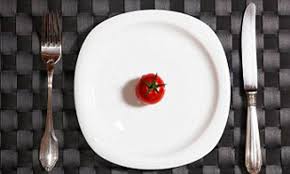
Starvation Diet Risks: Why Restricting Calories Can Harm Your Health
Are you considering a starvation diet for weight loss? It’s crucial to understand why this approach isn’t just ineffective but can also harm your health in the long run. Embarking on a starvation diet in hopes of shedding excess pounds may seem tempting, but it’s important to understand the potential risks and drawbacks. A starvation diet involves severely restricting calorie intake, which can lead to numerous negative effects on both physical and mental health. Let’s delve into why this approach is not only ineffective for sustainable weight loss but also poses serious health risks in the long run.

A starvation diet is not an effective or healthy approach to weight loss. While it may result in short-term weight loss, it can have negative long-term effects on both physical and mental health.
Overview of a Starvation diet
A starvation diet involves severely restricting calorie intake, often with the aim of rapid weight loss. However, this extreme approach can have detrimental effects on physical and mental health. It may lead to nutrient deficiencies, weakened immune function, and a slower metabolism. Additionally, it can contribute to the development of disordered eating patterns and other eating disorders. Overall, starvation diets are not sustainable or healthy methods for achieving weight loss goals. It’s essential to prioritize balanced nutrition and overall well-being instead.
The consequences of a starvation diet can be severe and impact various aspects of health. Some of the key consequences include:
- Nutrient deficiencies: Severely restricting calorie intake can lead to deficiencies in essential nutrients such as vitamins, minerals, and protein. This can result in a range of health problems, including weakened immune function, fatigue, and impaired cognitive function.
- Slower metabolism: Starvation diets can cause the body to enter a state of starvation mode, where it conserves energy by slowing down metabolism. This makes it harder to lose weight and can lead to weight gain once normal eating patterns are resumed.
- Muscle loss: In addition to losing fat, the body may also break down muscle tissue for energy during a starvation diet. This can lead to muscle wasting and a loss of strength and endurance.
- Organ damage: Prolonged starvation can damage vital organs such as the heart, kidneys, and liver. This can lead to serious health complications and even organ failure in severe cases.
- Disordered eating patterns: Starvation diets can contribute to the development of disordered eating patterns such as binge eating, emotional eating, and other eating disorders. These behaviors can have long-term effects on both physical and mental health.
It is essential to focus on developing healthy eating habits and adopting a balanced diet that meets your nutritional needs. Incorporating regular physical activity and making lifestyle changes that promote overall health and wellness are also essential for sustainable weight loss. It is advisable to consult a healthcare professional or a registered dietitian before starting any weight loss program to ensure it is safe and effective.
Disclaimer: The information provided in this content is for general informational purposes only. It is not intended as medical or healthcare advice, diagnosis, or treatment. Always seek the advice of a qualified healthcare professional with any questions you may have regarding a medical condition or healthcare decisions.

